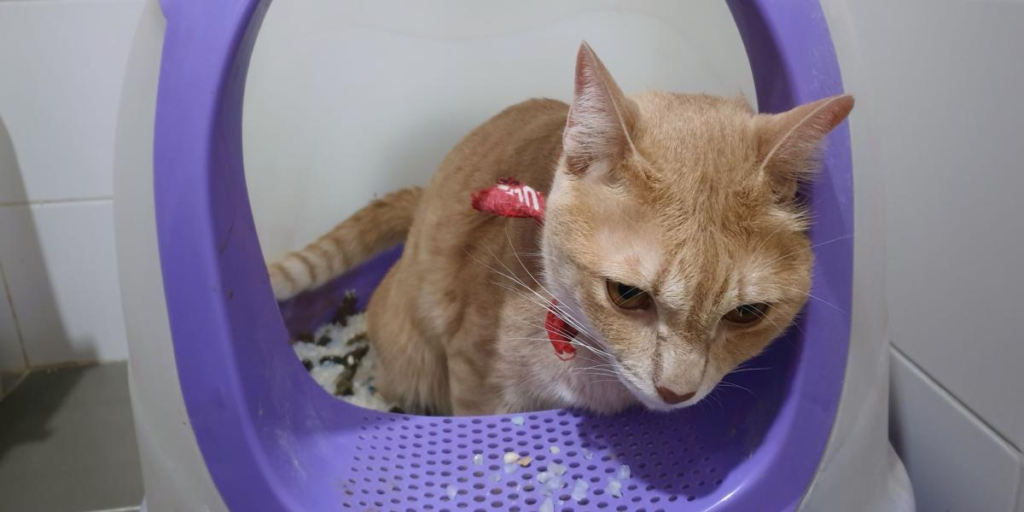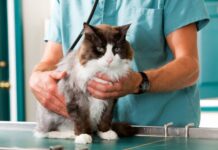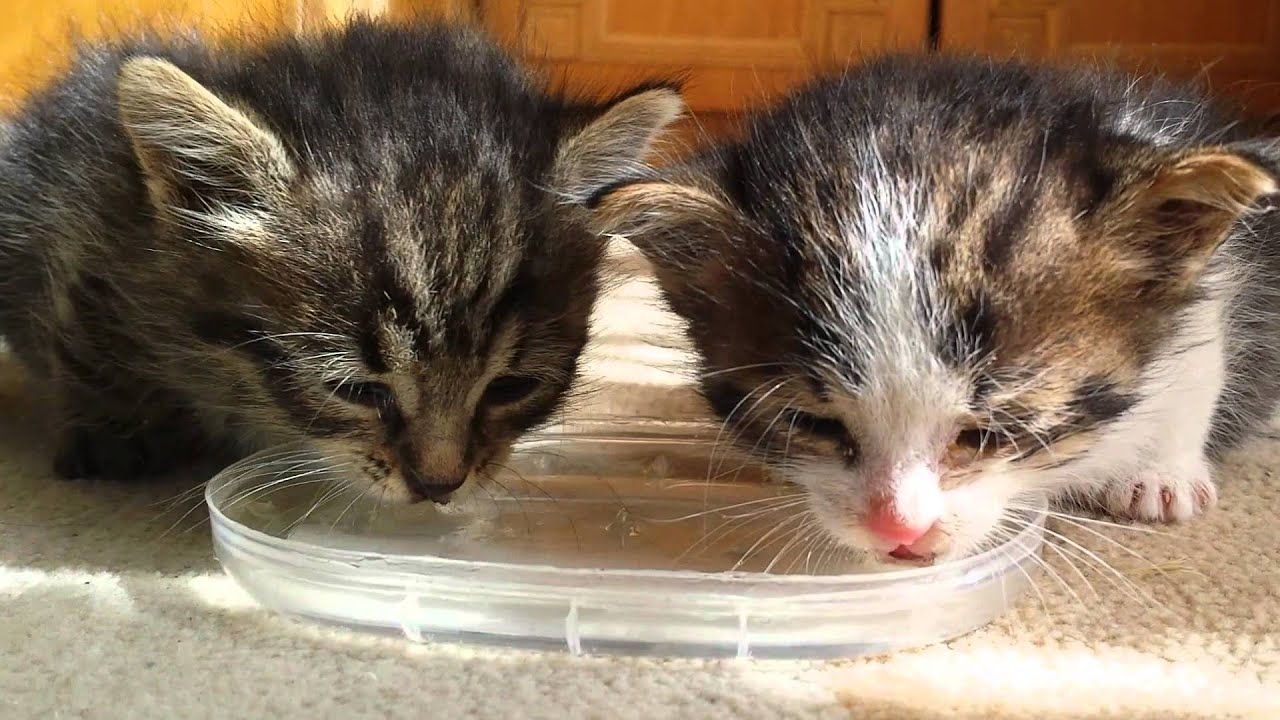Last Updated on August 14, 2023 by Fumipets
Colitis in Cats: Causes, Signs, and Treatment Options
Colitis in cats refers to inflammation of the colon, the last portion of the digestive tract. It can lead to various symptoms like diarrhea, mucus or blood in the stool, straining during defecation, and changes in litter box habits.
Colitis can have multiple causes, including dietary issues, infections, parasites, allergies, and stress. Diagnosing colitis involves a thorough physical examination, stool analysis, blood tests, and sometimes imaging.
Treatment depends on the underlying cause and can include dietary changes, medications to address inflammation or infections, and managing stress. Close monitoring and veterinary care are crucial to ensure the cat’s well-being.
Colitis in Cats
No cat parent likes to see their pet go through diarrhea, much less clean up the mess. If your cat is experiencing diarrhea, it may be due to colitis, a frequent ailment that affects people, cats, dogs, and other animals in addition to humans.
Inflammatory bowel disease has been linked to colitis in cats on occasion, but there are numerous other potential reasons as well. Fortunately, drugs, dietary modifications, and supportive care for animals may treat the majority of colitis cases.
What Causes Colitis in Cats?
Colon inflammation, sometimes referred to as large bowel inflammation, is known as colitis. Colitis may occur in cats of any age, breed, or gender. This illness might be persistent or present itself quickly (acute colitis).
Another medical problem often contributes to chronic colitis. It often has links to inflammatory bowel disease, a disorder that results in persistent inflammation of the digestive system.
Potential causes of colitis in cats include:
- Inflammatory bowel disease (IBD)
- Irritable bowel syndrome
- Stress/anxiety
- Intestinal parasites
- Food intolerance or sensitivity
- Dietary indiscretion (eating something they shouldn’t, like human food)
- Infections of the GI tract (bacterial, fungal, viral)
- Pancreatitis
- Trauma to the GI tract
- Feline Immunodeficiency Virus (FIV)
Signs and Symptoms of Colitis in Cats
Cats may get diarrhea in one or both of their small and big intestines. Small intestinal diarrhea in cats often results in vomiting, weight loss, and sluggishness.
When a person has small bowel diarrhea, their blood may seem black and may even resemble coffee grounds or tar. On the other hand, blood from big bowel diarrhea appears to be fresh red blood in the stool.
Cats may have both types of diarrhea simultaneously, particularly those that have inflammatory bowel illness. However, vomiting, nauseousness, and weight loss are less likely to occur with only colitis.
Signs of colitis in cats include:
- Soft or runny stool that may contain mucus or red blood
- Defecating outside the litter box
- Increased frequency of bowel movements
- Straining to defecate (this may look like constipation)
- Discomfort while defecating
- Appetite changes
- Increased flatulence
- Discomfort in the lower abdomen (usually caused by cramping or gas)
Any of these symptoms in your cat should prompt you to seek guidance from your vet. To make your cat feel better, you’ll probably need to see a veterinarian.

How to Treat Colitis in Cats
The underlying reason will determine the best course of treatment for cat colitis. Your cat’s diarrhea and medical history will be discussed with your veterinarian. Following a physical examination, the veterinarian will usually suggest a few diagnostic procedures.
To check for parasites and diseases, a stool sample is often the first step. The veterinarian could also advise taking X-rays of your cat’s belly to check for any anomalies, such as a lump or foreign object.
Additionally, blood tests may be required to evaluate blood cells, electrolyte balance, and organ function. You can be sent to a specialist for sophisticated tests like ultrasound, MRI, endoscopy, or exploratory surgery if your veterinarian suspects IBD.
Combination treatments are often used to treat colitis in cats. Medication and dietary modifications often fall within this category.
Medications
Your veterinarian will prescribe a dewormer to treat the particular kind of parasite identified if parasites are the cause of your cat’s colitis.
Tylosin and metronidazole are two common antibiotics used to treat cat colitis. Metronidazole not only eliminates bacterial infections, but it also contains anti-inflammatory qualities that might lessen diarrhea. While eradicating dangerous bacteria, tylosin may boost healthy gut flora.
Corticosteroids are occasionally used to treat IBD in cats to decrease inflammation and control the immune system (since IBD is influenced by the immune system).
To prevent adverse effects such as organ damage, diabetes, and immune system suppression in cats using corticosteroids, close observation is required. Immunosuppressive medications like chlorambucil or azathioprine may be used if corticosteroids are ineffective.
Diet Changes
Dietary adjustments may effectively treat many colitis cases. Until the diarrhea stops, your cat may need to temporarily switch to a different food. Veterinarians often advise diets containing hydrolyzed protein or new proteins like rabbit or kangaroo in situations of chronic colitis or IBD. For guidance on the ideal diet to feed your cat, see your veterinarian.
Home Remedies
To treat diarrhea brought on by colitis, some cat owners choose to employ natural treatments, fiber supplements, or over-the-counter pharmaceuticals.
However, these approaches may not be effective and could potentially make matters worse. Never give cats over-the-counter medications since they might be hazardous to them.
Before beginning any kind of supplement, herb, OTC medication, or other natural treatment for colitis in cats, get the opinion of your veterinarian.
Hospital Care
Cats with severe colitis may need to be hospitalized in order to get supportive treatment. In addition to drugs to relieve discomfort and address the underlying causes of colitis, this may also include intravenous fluids to rehydrate and balance electrolytes.
Reduce Stress
Stress may cause certain episodes of colitis, particularly in cats that already have IBD. You may take action to lessen the stress and anxiety your cat experiences at home. While it may not end the diarrhea, this can halt further flare-ups.
Although a trip to the clinic could perhaps make your cat more anxious, it’s sometimes the only option to start treatment. It’s essential not to put off seeing a vet since if left untreated, your cat’s diarrhea will definitely grow worse.
What’s the Outlook? The Future for Cats with Colitis
With little care, acute colitis in cats will often go away. However, cats that have IBD or chronic colitis may need more careful care and may undergo flare-ups. These cats could need a specific veterinarian diet and/or medicine for the rest of their lives. Cats with such chronic diseases will need regular checkups with the doctor.
Questions and Answers:
What is colitis in cats?
Colitis in cats is inflammation of the colon, leading to symptoms like diarrhea, blood in the stool, and difficulty defecating.
What are the common symptoms of colitis in cats?
Common symptoms include diarrhea, mucus or blood in the stool, straining during bowel movements, and changes in litter box behavior.
What can cause colitis in cats?
Colitis can be caused by various factors, such as dietary issues, infections, parasites, allergies, and stress.
How is colitis in cats diagnosed?
Diagnosis involves a thorough physical exam, stool analysis, blood tests, and sometimes imaging like X-rays or ultrasounds to determine the underlying cause.
How is colitis in cats treated?
Treatment depends on the cause and may involve dietary changes, medications to address inflammation or infections, and managing stress. Veterinary care and monitoring are important for the cat’s recovery.
Please note that while I strive to provide accurate and up-to-date information, it’s always recommended to consult a veterinarian for specific concerns about your cat’s health.
https://www.youtube.com/watch?v=hw8JHsSmOG4


















